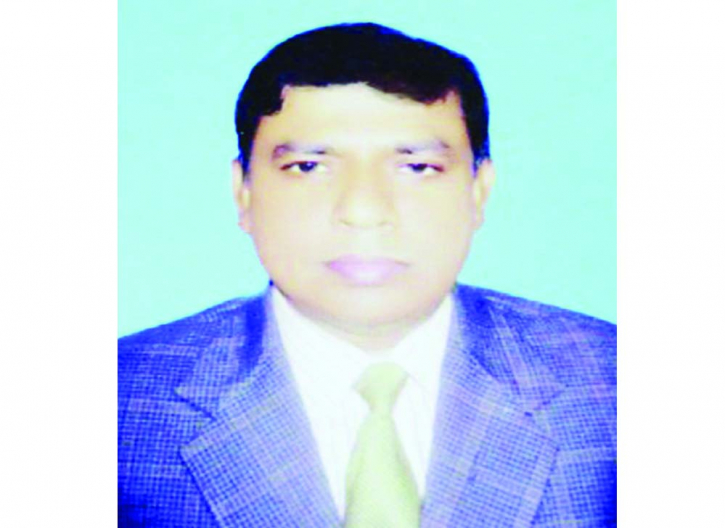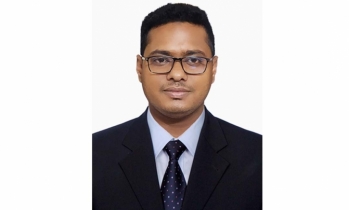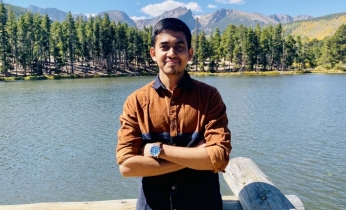
The parents, brothers and relatives of a 24-year-old girl were killed in one night. The girl could not see anyone's body. From beyond the seas she and her little sister heard only this tragic story, then the struggle to save their lives for six years. To flee is to emigrate from country to country and then returning to the country after six years exiled life with life in hand. Yes, I am talking about Sheikh Hasina, the eldest daughter of Bangabandhu Sheikh Mujib, the father of the Bengali nation. She returned to the country in an adverse environment with the post of Awami League president when the party was dispersed in fear, terror, torture, assault and lawsuit. The matter was not so simple as Veni, Vidi, Vici or I came, I saw and I conquer. She has been victimized by at least 17 times life threatening attack in the last 40 years since returning to the country. She has had to lead a long struggle for the establishment of democracy by tackling the persecution of the military regime, and the incorporation of religious fundamentalism into politics, one of the main weapons of the military rulers. She came to power for the first time in 1996 after leading a long 15-year struggle from the front and restoring the people's right to vote. She did not hurry but gradually repealed the Ziaur Rahman's Indemnity Act amending the constitution and brought the August 15 murderers to justice under the country's customary law. She turned US Secretary of State Henry Kissinger's alleged bottomless basket into a food exporter one. At this very moment, the Prime Minister of Bangladesh Sheikh Hasina is out of the country to attend the session of the UN General Assembly. She has addressed in his mother tongue Bengali eighteen times in this forum.
The 41-year journey on this thorny path was not very comfortable.
Sheikh Hasina has to go her way with betrayers, with most of the Bangabandhu's cabinet members who were sworn in as Mushtaq's cabinet members while his father's body was lying on the stairs of House No. 32, with them who wanted to remove her from politics according to the 1/11 minus two formula and with the looters who are intercepting the economic development of the country. Time and again, the root level common supporters made the 'boat' ply on the rivers of the country. She lamented that everyone in the Awami League can be bought except Sheikh Hasina. Today is the 74th birthday of Sheikh Hasina, the most successful statesman of this country called Bangladesh. This article is for a short discussion on various aspects of her life out of respect for a lone fighter.
Sheikh Hasina was born on 28 September 1947 in Tungipara in the then East Pakistan. Her father was the first President of Bangladesh Sheikh Mujibur Rahman and his mother Begum Fazilatunnesa. She took his childhood education in Tungipara.
From 1954, she started living with his family in Dhaka at Rajni Bose Lane, Mogaltuli. She later moved to the government residence on Minto Road. In 1956, she was admitted to the Narishiksha Mandir Girls' School in Tikatuli. On October 1, 1971, she started living in house number 32 in Dhanmondi. In 1965 she passed matriculation from Azimpur Girls High School. Sheikh Hasina graduated from Dhaka University in 1973. While at university, she married MA Wazed Mia, a scientist who died on May 9, 2009. They have two children named Sajib Wazed Joy and Saima Wazed Putul. When Sheikh Mujibur Rahman was arrested by the Pakistani military on the night of March 25, 1971, he was at his father's house on Dhanmondi Road No. 32. After the arrest of Sheikh Mujib, she continued to live with his mother and siblings.
All members of the family were killed in a military coup on August 15, 1975, except for her and her sister Sheikh Rehana. The two sisters were studying in West Germany at the time. After that she stayed in different countries including India and Belgium to survive. In 1981, the Awami League unanimously elected Sheikh Hasina as party president in her absence. After six years of exile, she finally returned to the country on May 17, 1981 with the aim of leading the Bangladesh Awami League.
Later, she and her party formed a violent movement against Ershad and in 1990, through a similar political movement, forced the Ershad government to resign from power. The Awami League won 88 parliamentary seats and emerged as the main opposition party. It gained 30.1% of the total votes cast, which is only 0.7% less than the party forming the government. In 1991, under her leadership, the Awami League emerged as the then largest opposition party in Bangladesh. Sheikh Hasina led the Awami League, the oldest political party in Bangladesh, in the 1990 movement to overthrow the dictatorship. In 1996, he outlined a caretaker government. In 1996, her party, the Awami League, making alliance with the Left parties to demand a caretaker government and forced Khaleda Zia's BNP government to institutionalize the caretaker government through various political programs. Her party did worse than expectation in the polls. Later. In 1996 general election her party won and she served as the Prime Minister from 1996 to 2001. In the 2001 elections, the Bangladesh Awami League lost by a wide margin.
The Awami League lost the October 1, 2001 elections to the electoral alliance of BNP, Bangladesh Jamaat-e-Islami, Jatiya Party (Naziur Rahman Monju) and Islami Oikyajot. While addressing a public meeting in Dhaka on 21 August 2004, a large-scale plot was hatched to assassinate Sheikh Hasina, a prominent statesman of the Bangabandhu family. The leader survived the grenade attack that killed 19 people, including his close associates and Awami League leader Ivy Rahman, and injured more than one hundred. The report of the Judicial Commission of Inquiry described the attack as a conspiracy of power holders. In order to divert the investigation into the grenade attack, the then four-party alliance government led by BNP created several farces, including the drama 'Judge Mia'. Later, the real truth came out after a proper investigation by the domestic and foreign intelligence agencies. Later in 2006 she started the movement again with some new problems.
Sheikh Hasina was arrested for the first time in her long political life in 2008. During the caretaker government, the joint forces arrested Sheikh Hasina from her residence "Sudha Sadan" on July 17, 2008 at 8:31 am. He was handed over to the court. There, the court denied his bail plea. Sheikh Hasina was detained at the residence of the Deputy Speaker of the National Assembly of Bangladesh as a sub-jail. Prior to her arrest, Sheikh Hasina appointed Zillur Rahman, a senior Awami League leader, as the party's acting president. A case was filed against Sheikh Hasina on two charges. One is a murder case for a political clash in Paltan on October 26, 2006 and the other is an extortion case worth around Tk 3 crore. After her release from prison, she stayed abroad for several months for medical treatment. After that he returned to the country despite the desperate attempt of the then government not to enter her in the country. Through the general election of 2008, Sheikh Hasina assumed the power and she is completing the consecutive third time. Though there is controversy regarding the general election of 2014 and 2018 regarding its 'free and fair' nature. Ignoring the hurdles made by World Bank, the construction of Padma Bridge with its own funds can be considered as the biggest achievement of Sheikh Hasina's rule. While the developed and rich countries of the world have struggled to cope with the Covid-19 situation, their economy has collapsed, and despite widespread corruption in the health sector, Bangladesh has handled the situation well under Sheikh Hasina's leadership. So far she has published as many as 30 books written and compiled by herself. We want her good health and long life because many believe that as long as the country is in the hands of Sheikh Hasina, Bangladesh will not lose its way.
The writer is an assistant Professor of English of Abdul Hye City College, Narail and the Narail district correspondent of The South Asian Times.




































